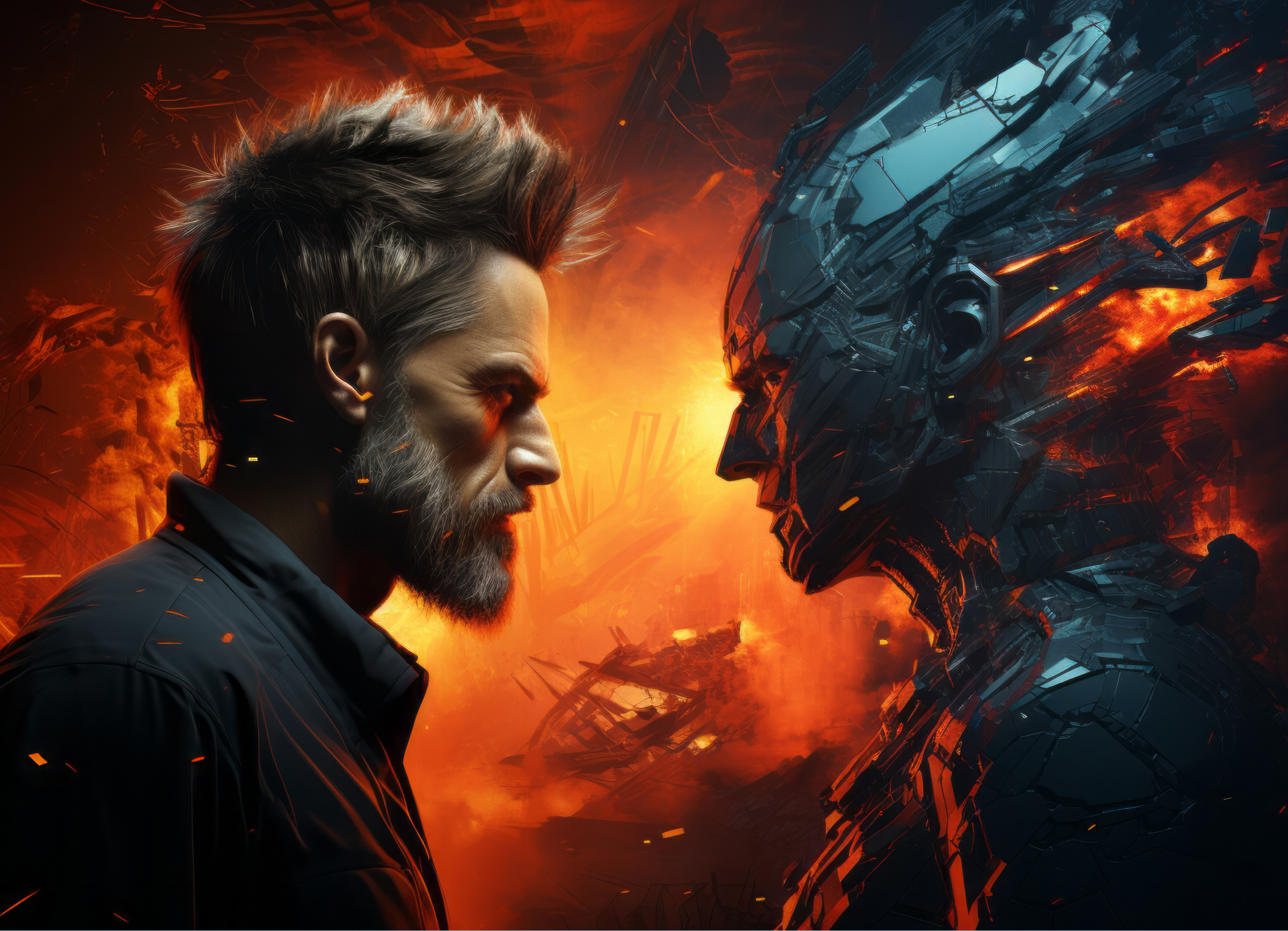Introduction The World of Artificial Intelligence (AI) and Its Application in Content Creation for RPG Games Recently, the world of IT technology has been actively filled with various iterations of artificial intelligence. From advanced chatbots that provide technical support to complex algorithms aiding doctors in disease diagnosis, AI’s presence is increasingly felt. In a few years, it might be hard to imagine our daily activities without artificial intelligence, especially in the IT sector. Let’s focus on generative artificial intelligence, such as TensorFlow, PyTorch, and others, which have long held an important place in software development. However, special attention should be given to the application of AI in the video game industry. We see AI being used from voice generation to real-time responses. Admittedly, this area is not yet so developed as to be widely implemented in commercially available games. But the main emphasis I want to make is on the creation and enhancement of game content using AI. In my opinion, this is the most promising and useful direction for game developers. The Lack of Resources in Creating Large and Ambitious RPG Games and How AI Can Be a Solution In the world of indie game development, a field with which I am closely familiar, the scarcity of resources, especially time and money, is always a foremost challenge. While artificial intelligence (AI) cannot yet generate money or add extra hours to the day (heh-heh), it can be the key to effectively addressing some of these issues. Realism here is crucial. We understand that AI cannot write an engaging story or develop unique gameplay mechanics – these aspects remain the domain of humans (yes, game designers and other creators can breathe easy for now). However, where AI can truly excel is in generating various items, enhancing ideas, writing coherent texts, correcting errors, and similar tasks. With such capabilities, AI can significantly boost the productivity of each member of an indie team, freeing up time for more creative and unique tasks, from content generation to quest structuring. What is Artificial Intelligence and How Can it be Used in Game Development For effective use of AI in game development, a deep understanding of its working principles is essential. Artificial intelligence is primarily based on complex mathematical models and algorithms that enable machines to learn, analyze data, and make decisions based on this data. This could be machine learning, where algorithms learn from data over time becoming more accurate and efficient, or deep learning, which uses neural networks to mimic the human brain. Let’s examine the main types of AI Narrative AI (OpenAI ChatGPT, Google BERT): Capable of generating stories, dialogues, and scripts. Suitable for creating the foundations of the game world and dialogues. Analytical AI (IBM Watson, Palantir Technologies): Focuses on data collection and analysis. Used for optimizing game processes and balance. Creative AI (Adobe Photoshop’s Neural Filters, Runway ML): Able to create visual content such as textures, character models, and environments. Generative AI (OpenAI DALL-E, GPT-3 and GPT-4 from OpenAI): Ideal for generating unique names, item descriptions, quest variability, and other content. By understanding the strengths and weaknesses of each type of AI, developers can use them more effectively in their work. For example, using AI to generate original stories or quests can be challenging, but using it for correcting grammatical errors or generating unique names and item descriptions is more realistic and beneficial. This allows content creators to focus on more creative aspects of development, optimizing their time and resources. An Overview of the Characteristics of Large Fantasy RPG Games and Their Content Requirements In large fantasy RPG games, not only gameplay and concept play a pivotal role, but also the richness and variability of content – spells, quests, items, etc. This diversity encourages players to immerse themselves in the game world, sometimes spending hundreds of hours exploring every nook and cranny. The quantity of this content is important, but so is its quality. Imagine, we offer the player a relic named “Great Heart” with over 100 attribute variations – that’s one approach. But if we offer 100 different relics, each with a unique name and 3-4 variations in description, the player’s experience is significantly different. In AAA projects, the quality of content is usually high, with hundreds of thousands of hours invested in creating items, stories, and worlds. However, in the indie sector, the situation is different: there’s a limited number of items, less variability – unless we talk about roguelikes, where world and item generation are used. A typical feature of roguelikes is the randomization of item attributes. However, they rarely offer unique generation of names or descriptions; if they do, it’s more about applying formulas and substitution rules, rather than AI. This opens new possibilities for the use of artificial intelligence – not just as a means of generating random attributes, but also in creating deep, unique stories, characters, and worlds, adding a new dimension to games. Integrating AI for Item Generation: How AI Can Assist in Creating Unique Items (Clothing, Weapons, Consumables). One of the practical examples of using AI is creating variations based on existing criteria. Why do I consider this the best way to utilize AI? Firstly, having written the story of your game world, we can set limits for the AI, providing clear input and output data. This ensures a 100% predictable outcome from AI. Let’s examine this more closely. When talking about the world’s story, I mean a few pages that describe the world, its nature, and rules. It could be fantasy, sci-fi, with examples of names, unique terminology, or characteristic features that help AI understand the mood and specifics of the world. Here is an excerpt from the text I wrote for my game world. The Kingdom of Arteria is an ancient and mysterious realm, shrouded in secrets and imbued with a powerful form of dark magic. For centuries, it has been ruled by Arteon the First, a wise and just monarch whose benevolence has brought peace and prosperity to his…



